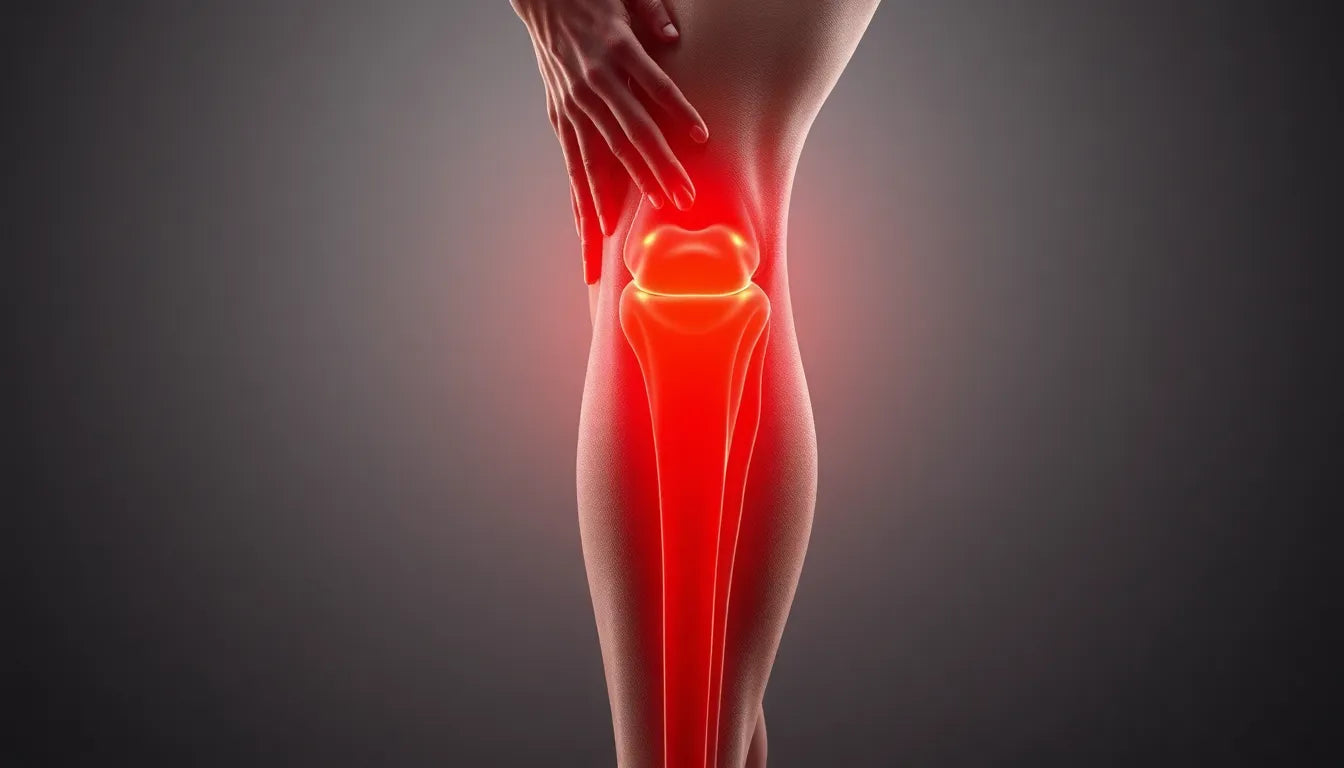The discomfort of a pressed rib, or "trykket ribben," is a common yet often misunderstood cause of back pain. This condition arises when one or more ribs are compressed or contused, leading to pain that can radiate from the rib cage into the back. It's a prevalent issue that affects many individuals, disrupting daily activities such as breathing, moving, and even sitting comfortably. Understanding the nuances of this condition is crucial for effective management and relief.
recognizing the symptoms of a pressed rib
One of the key indicators of a pressed rib is the pain that starts in the rib area and extends to the back. This pain can range from a dull ache to a sharp, stabbing sensation, particularly when taking deep breaths, coughing, or moving. The discomfort can be persistent and may severely limit your ability to engage in regular activities, making even simple tasks feel challenging. Additionally, the pain may intensify with pressure applied to the affected rib, further complicating the situation.
the importance of identifying rib-related pain
It's essential to recognize and differentiate rib pain from other types of back pain because the management strategies can differ significantly. While general back pain might be addressed with standard treatments, a pressed rib requires a more tailored approach. Misidentifying the source of pain can lead to ineffective treatment and prolonged discomfort. Therefore, understanding the potential causes of a pressed rib is crucial for proper diagnosis and relief.
Common causes of a pressed rib include direct trauma, such as a fall or sports injury, and significant pressure, like that from a seat belt during a car accident. These incidents can compress the rib, leading to the symptoms described. Knowing these causes can help in identifying the problem early and seeking appropriate care.
In the following sections, we will delve deeper into the symptoms and causes, explore how to differentiate a pressed rib from a fractured one, and discuss effective treatment and management strategies. Recognizing the signs and understanding the condition is the first step towards alleviating the discomfort and reclaiming your quality of life.
understanding symptoms and causes
The symptoms of a trykket ribben can be quite distinctive, yet they are often confused with other forms of back pain. Typically, individuals experience localized pain at the site of the rib, which can radiate into the back, creating a broader area of discomfort. This pain often intensifies during activities that involve deep breathing, coughing, or any sudden movements. The discomfort can range from a persistent dull ache to sharp, stabbing sensations, particularly when pressure is applied to the affected rib.
Common causes of a pressed rib include direct trauma, such as a blow to the chest from sports injuries or falls, and significant pressure, like that experienced during a car accident with a seatbelt. These incidents can compress the rib without necessarily breaking it, leading to the symptoms described. Understanding these causes is vital for early identification and appropriate management of the condition.
differentiating a pressed rib from a rib fracture
It's crucial to differentiate a trykket ribben from a brækket ribben (fractured rib) because the treatment and management strategies can vary significantly. Here's a simple comparison to aid in recognizing the differences:
| Condition | Symptoms |
|---|---|
| Trykket Ribben | Diffuse, lingering pain; tenderness; often no visible deformity; pain worsens with pressure but no severe breathing impairment. |
| Brækket Ribben | Sharp, localized pain; possible deformity; may hear an audible crack; significant pain during breathing; possible severe breathing issues. |
Accurate differentiation is essential for effective treatment. While both conditions may involve pain management and rest, a fractured rib might require more intensive medical intervention.
effective treatment and management strategies
Managing the pain and discomfort from a pressed rib involves a combination of self-care and professional treatment options. Here are some effective strategies:
pain relief
Over-the-counter pain relievers like paracetamol and ibuprofen are commonly recommended to manage pain. These medications help reduce inflammation and provide relief from discomfort. In rare cases where pain is severe and unmanageable, advanced interventions such as pain catheters may be considered.
breathing exercises
Maintaining lung health is crucial, especially when dealing with rib-related pain. Breathing exercises are recommended to prevent complications such as lung congestion. Simple exercises like deep breathing, where you inhale deeply and slowly exhale, can help expand the lungs and improve overall respiratory function.
rest and gradual mobilization
While rest is essential, complete immobilization should be avoided to prevent stiffness and promote healing. Gradually reintroducing activity can help maintain mobility and prevent further complications. It's important to listen to your body and avoid movements that exacerbate the pain.

Lumbar support belt
Lower back support for pain relief and stabilization for daily activities or recovery.
the role of physiotherapy and osteopathy
For persistent pain or delayed healing, seeking professional help from a physiotherapist or osteopath can be beneficial. These professionals can provide manual therapy and exercise guidance tailored to your specific needs. Physiotherapy can help in restoring mobility, improving breathing techniques, and managing pain effectively.
Osteopathy, with its focus on the body's musculoskeletal system, can also offer relief through gentle manipulations and adjustments that enhance healing and reduce discomfort. Both therapies aim to support recovery and prevent long-term complications.
In conclusion, understanding the symptoms and causes of a pressed rib, differentiating it from more severe conditions like rib fractures, and implementing effective treatment strategies are crucial steps in managing this condition. By combining self-care with professional guidance, individuals can alleviate discomfort and improve their quality of life.
when to seek medical attention for a pressed rib
While many cases of a pressed rib can be managed with home care, certain symptoms warrant professional medical evaluation. If you experience shortness of breath, severe pain that restricts movement, or suspect additional injuries, such as pneumothorax or internal bleeding, it’s crucial to seek immediate medical attention. Additionally, if over-the-counter medications fail to alleviate the pain, consulting a healthcare provider is essential to explore further treatment options.
comprehensive self-care resources for recovery
Creating a structured recovery plan can significantly aid in managing a pressed rib. Begin by incorporating breathing and mobility exercises into your daily routine. These exercises not only help in maintaining lung health but also promote gradual healing by improving circulation and flexibility. Consider using a pain tracking sheet to monitor progress, identify patterns, and adjust your activities accordingly. This proactive approach can help you stay on track and avoid setbacks during recovery.

Women's Posture Shirt™ - Black
Patented shirt to improve posture, relieve tension, and support your back all day.
expert insights and real-life recovery stories
Gaining insights from healthcare professionals and individuals who have experienced a pressed rib can provide valuable perspectives on recovery. Interviews with physiotherapists or osteopaths can shed light on effective treatment strategies and offer practical advice tailored to your needs. Additionally, reading real-life recovery stories can inspire and motivate you, showing that overcoming this condition is possible with the right approach and mindset.
frequently asked questions
What is a pressed rib, and how does it differ from a fractured rib?
A pressed rib, or "trykket ribben," involves compression or contusion of the rib, causing diffuse pain and tenderness without visible deformity. In contrast, a fractured rib, or "brækket ribben," typically results in sharp, localized pain, potential deformity, and may involve severe breathing difficulties.
How long does it typically take to recover from a pressed rib?
Recovery from a pressed rib generally takes a few weeks, depending on the severity of the injury and the individual's overall health. Factors such as adherence to self-care practices and avoiding activities that exacerbate pain can influence the healing timeline.
Can a pressed rib cause long-term back problems?
While a pressed rib primarily causes temporary discomfort, improper management or repeated injuries can potentially lead to long-term issues. Engaging in appropriate self-care and seeking professional guidance can help prevent chronic pain and complications.
What exercises can help alleviate back pain from a pressed rib?
Exercises focusing on gentle stretching and strengthening, such as shoulder rolls, deep breathing, and torso twists, can help alleviate back pain associated with a pressed rib. These exercises promote mobility and reduce muscle tension.
When should I see a doctor for rib-related back pain?
Consult a doctor if you experience severe pain, difficulty breathing, or suspect additional injuries. Persistent pain unresponsive to over-the-counter medications also warrants medical evaluation to rule out complications and explore further treatment options.


















